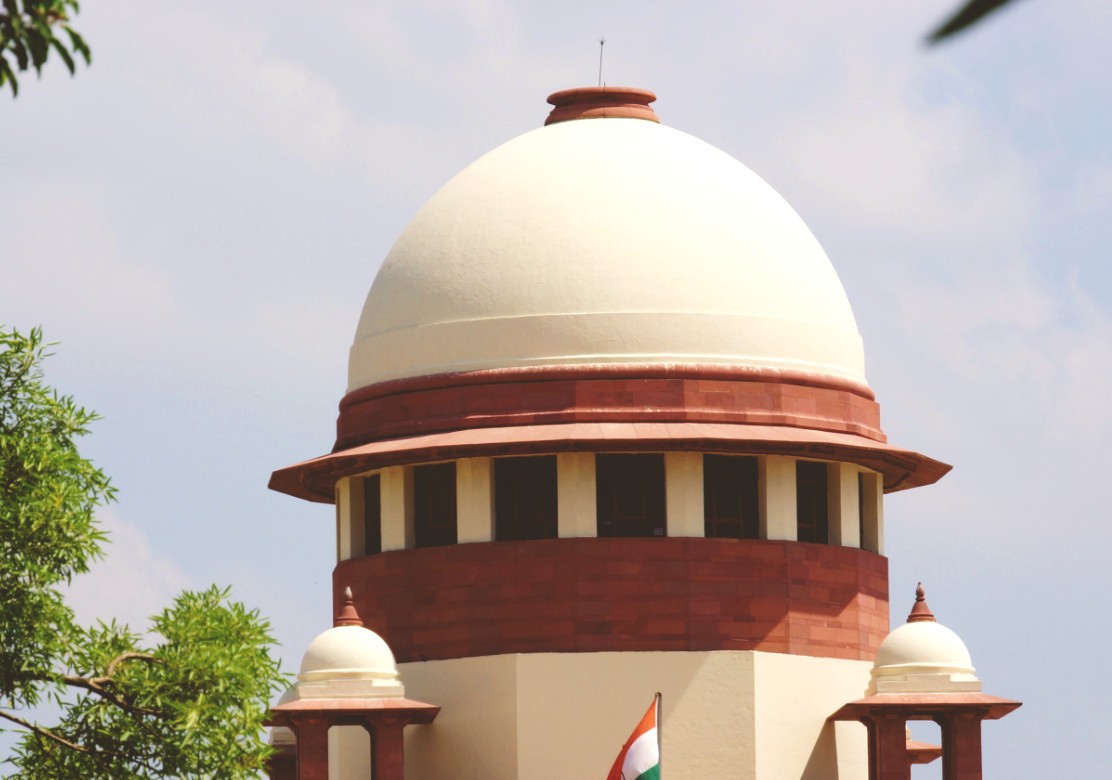In CIVIL APPEAL NO.1359 OF 2023-SC- ‘Private agreements can’t be enforced in Slum Rehabilitation Schemes as against statutory mandate of Rehabilitation Authority; Contractual interests can’t be allowed to prevail over public policy’: Supreme Court
Justices Aniruddha Bose & Sudhanshu Dhulia [15-12-2023]

Read Order: SAYUNKTA SANGARSH SAMITI & ANR v. THE STATE OF MAHARASHTRA & ORS
Tulip Kanth
New Delhi, December 18, 2023: The Supreme Court has dismissed an appeal filed by a separate minority society of slum dwellers called Sayunkta Sangharsh Samiti whereby the members challenged the Bombay High Court’s order directing the Maharashtra Slum Rehabilitation Authority to allot flats by way of lottery.
The Division Bench, comprising of Justice Aniruddha Bose and Justice Sudhanshu Dhulia, opined that the allotment by draw of lots is not an arbitrary order of SRA but this is the settled procedure, long continuing and in terms of the law. The Bench also referred to the Circular No. 162 dated 23.10.2015 which says that allotment will be done by draw of lots for all the hutment dwellers.
In the said case, the SRA had proposed a Slum Rehabilitation Scheme for the slum at CS No. 1(pt) of Lower Parel Division at J.R. Boricha Marg. The project was for construction of a total built up area of 75854.716 sq. m., where 1765 slum dwellers were to be rehabilitated. The construction of all the above towers has been completed as of now, and 473 slum dwellers have already been given possession of their tenements in Towers A, B and C.
However, the allotment for the remaining towers had been stalled due to the interference caused by a minority section of the slum dwellers. These slum dwellers formed a separate minority society for themselves, called Sayunkta Sangharsh Samiti- appellant no. 1.
The Developer filed a civil suit seeking injunction against the defendant nos.1 to 15 who were inhabitants of the slum, and as per the scheme had an entitlement for a flat each in the residential complex which was to be constructed by the developer i.e., the plaintiff, but these defendants were not letting the Developer make construction of the nine towers which had to be constructed within a stipulated time. During the pendency of the suit an MoU was signed between the plaintiff and appellant-society. A purely private arrangement was thus arrived at between the developer and the minority members of the hutment dwellers whereby the society undertook to enforce self-development rehabilitation with the cooperation of the developer.
Ultimately the SRA decided to allot 712 flats on Tower D, E & F, on the basis of lottery, but then by an order, the SRA stayed this order. This order was challenged by the appellant before the Bombay High Court in a writ petition which was disposed of vide order directing SRA to take a call on allotments of these flats in Tower D, E & F, by way of lottery. The SRA in compliance with the said order passed an order deciding to allot the flats in Tower D, E & F.
Aggrieved by this order of SRA, the appellants filed another Writ Petition. The main ground taken by the appellant was that SRA had to conduct allotment as per the terms of the MoU by giving preferential allotment to the members of the appellant society in Towers D, E and F. The Bombay High Court dismissed the Writ Petition.
In this matter, the procedure for allotment was at the core of the dispute.
As per the Bench, the Civil Suit was at the behest of the Developer against individual society members and the SRA was not made a party to these proceedings. “The seemingly ingenious, yet unfair and even specious method adopted by the Developer in league with the Appellants to bypass the statutory procedure must be deprecated”, the Bench said while also adding, “Admittedly, there is no provision in law by which the settlement terms entered into by two private players can be accepted and followed in violation of the statutory procedure given in Circular No.162 dated 23.10.2015.
“Private agreements cannot be enforced in Slum Rehabilitation Schemes as against the statutory mandate of the SRA”, the Bench said while further clarifying that under the Maharashtra Slum Areas (Improvement, Clearance and Redevelopment) Act, 1971, SRA is the final authority for implementing a slum rehabilitation scheme.
“…SRA has to act in terms of its own policies and circulars without allowing private or contractual interests to prevail over public policy especially a policy which is welfare based”, the Bench said.
Pointing out that the Circular No. 162 was issued on 23.10.2015, the Bench observed that the appellant society though had filed two Writ Petitions subsequently in connection with the procedure for allotment undertaken by the SRA, yet it didn’t challenge the validity of Circular No. 162, instead it sought to impose its private contractual rights over and above the statutory provisions. This mechanism, according to the Bench, was not permissible.
In view of such findings, the Bench dismissed the Appeal and upheld the order passed by the High Court of Bombay. “The order of status quo on allotment of flats given by this Court on 24.01.2022 is also vacated. The Slum Rehabilitation Authority is directed to carry out the allotment of flats in accordance with law. All pending interim applications are disposed of in terms of the directions contained in the present judgement”, the Bench ordered.
Noticing the fact that the Developer had evidently taken a surreptitious route bypassing the statutory procedure, the Bench remarked that the SRA would be failing in its duty if it does not seek explanation from the Developer in this regard and takes suitable action.
Sign up for our weekly newsletter to stay up to date on our product, events featured blog, special offer and all of the exciting things that take place here at Legitquest.




Add a Comment